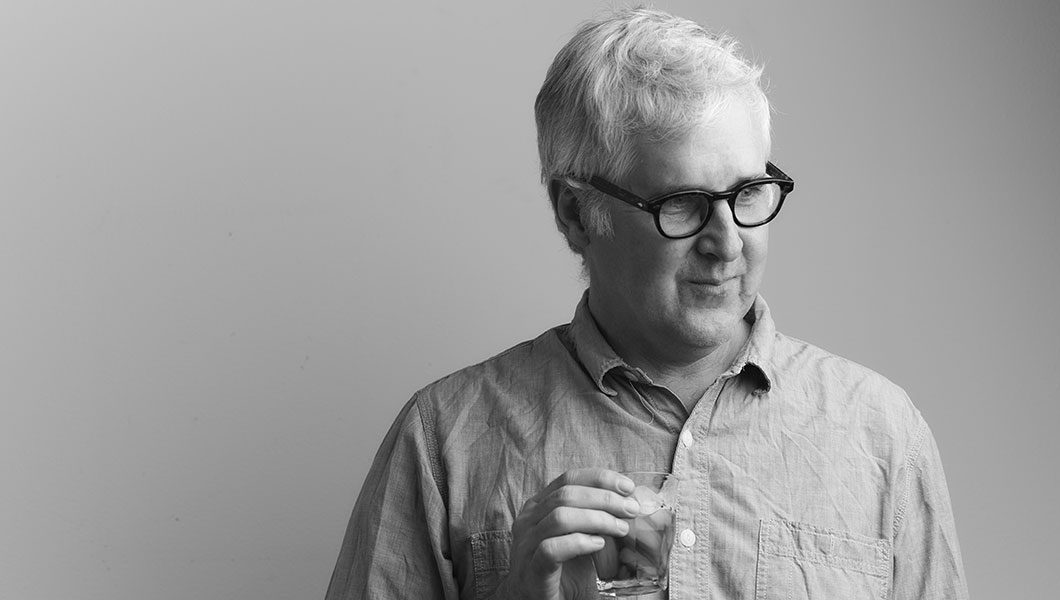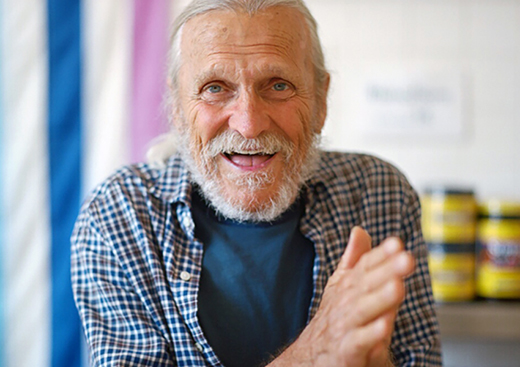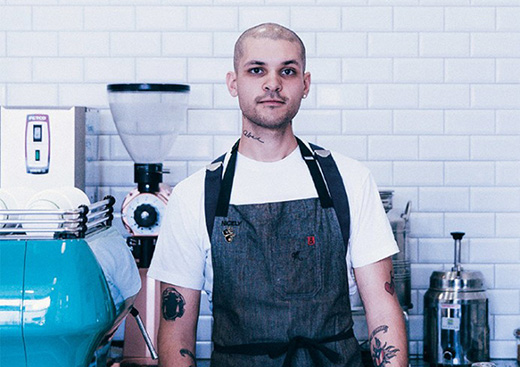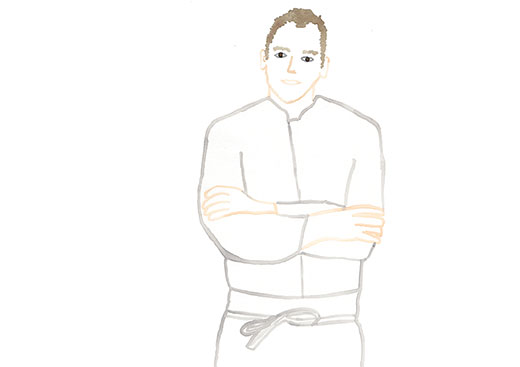“PEOPLE FALL IN LOVE AT CAFÉS. PEOPLE HAVE DEEP AND IMPORTANT CONVERSATIONS IN CAFÉS. THEY MEET PEOPLE THEY MIGHT MARRY OR GO INTO BUSINESS WITH, OR BOTH, SO IT’S A GREAT RESPONSIBILITY.”
“I feel like serving coffee is a moral act. It needs to be taken very seriously,” says James Freeman, founder of Oakland-based artisanal roaster Blue Bottle Coffee.
To understand just how seriously Freeman takes it, look no further than his blossoming coffee empire. Started in 2002, Blue Bottle has expanded to more than 26 cafés (found everywhere from San Francisco’s Ferry Building to New York’s Rockefeller Center) and multiple roasteries in the United States and Japan. Speaking on the phone from the brand’s Oakland headquarters, Freeman is readying to jump on a plane bound for Tokyo with his wife and children to celebrate the opening of the Shinjuku café, situated inside the busiest train station in the world.
Freeman’s love of Japan is no secret; since early 2015, three Blue Bottle Coffee cafés have gone up in and around Tokyo, with more to follow by the end of the year. He first visited the country as a teenager and “it blew me away,” he says. But even more apparent is his deep appreciation of Japanese hospitality, an art that informs many of Freeman’s business decisions. “I’ve really been inspired by Japanese coffee houses, called kissaten,” says Freeman. “They’re dowdy and unfashionable, but they’re deeply personal.” He also references the Japanese concept of kodawari, which, loosely translated, means a devotion to even the most mundane details, and the pursuit of excellence. “All of these kissaten have a deep kodawari,” he muses.
Undoubtedly, Blue Bottle Coffee has its own sense of kodawari, a result of Freeman’s own obsessive traits and innate quest for perfection. Long before Freeman’s infatuation with coffee, the Northern California native was on track to becoming a career musician. “You play things thousands and thousands of times, over and over again, looking for microscopic improvements. That was my life from age 12 on,” he says. “That can turn you on, of course, but you’re untethered to the practical, and that helped me when I started coffee, because that was just how I lived.”
What started out as a hobby—Freeman would roast coffee beans at home on a perforated baking sheet—quickly turned into a passion as he began discovering the nuances of freshly roasted beans (“I was having these really interesting experiences of coffee getting more and more delicious a few days after roasting and then reaching a peak and tapering off”). Soon he began pouring his coffee at a local farmers market on Saturdays—which he half-jokingly refers to as his hospitality “graduate school.” “I learned a lot in terms of being in the context of a food community, being very hospitable, to work in a challenging environment without running water, without electric power,” says Freeman. Perseverance paid off: Freeman’s last gig as a professional clarinet player was in January 2001; Blue Bottle Coffee launched in a 186-square-foot roastery the following year and hasn’t stopped growing since.
Freeman’s methodical approach to coffee still harkens back to his farmers market days; he’s constantly looking for ways to elevate his product. “I divide up my week so every day has a different theme of focus,” he says. Today, which happens to be a Tuesday, is all about product, which ranges from the single-origin, fruit-forward Kenyan Kirinyaga Peaberry to the chocolaty Hayes Valley Espresso and the best-selling Bella Donovan—taken black or with milk or cream. “I’ll go back to the cupping room and cup all the blends from all the different regions. All of it is blind, so we don’t weigh in with preconceived notions of what things should taste like. It’s all this idea of trying to get a little bit better.” All of Blue Bottle’s U.S. roasteries are certified organic, and more than 85 percent of coffee purchased is certified organic, too.
Blue Bottle is often referred to as a trailblazer in Third Wave coffee—the movement toward artisanal coffee with a focus on all aspects of production, from the growers to roasting and brewing. It’s a reaction, in part, to the coffee-for-the-masses concept practiced by the likes of Starbucks, shining a spotlight on quality versus quantity. Freeman is a believer in the notion that the consumer’s expectations have changed. “My theory—that’s totally untethered to any factual exploration—is that there are just as many places to get coffee as there were 10 or 20 or 50 years ago, but every time a place that doesn’t serve coffee well closes, another one opens that serves coffee a lot better. So I feel like the standard is getting higher.”
Part of that equation includes service. Tantamount to coffee at Blue Bottle is a commitment to hospitality on display throughout its cafés. This is one of the areas where Freeman takes cues from Japanese culture. He refers back to the day Blue Bottle’s first door opened in Kiyosumi, when they served close to 1,200 customers. “We closed and nobody had coffee on their shoes. It’s those little micro lessons that I think can be so powerful, as well as the macro lessons about welcoming people and keeping a neat space, and treating everyone as if they are the most important guest you’ll ever have.” Freeman calls it a sense of “heads-up-ness”—the idea of thanking people for waiting in line, and acknowledging customers in a friendly and direct manner.
There are innumerable ways to measure Blue Bottle’s success since its inception, from the brand’s 2014 acquisition of L.A.’s Handsome Coffee Roasters and subscription coffee roaster Tonx to the ready-to-go all-organic Blue Bottle Cold Brew and New Orleans Iced Coffee that line the shelves at Whole Foods. And let’s not forget the 10 additional cafés slated to open by the end of 2016. But Freeman’s job is never done. “If you try to maintain something, it’s going to slip away from you,” he says. “You have to think about getting better at what makes it work, whether it’s designing a space or teaching somebody how to make coffee, or sourcing the most interesting coffee we can find. These are investments nobody needs to know about, nobody needs to see. [The customer] just needs to know they’re going to have a better experience next year than this year.”
—





